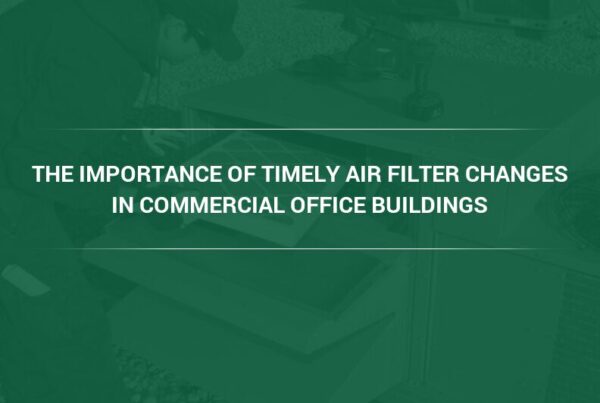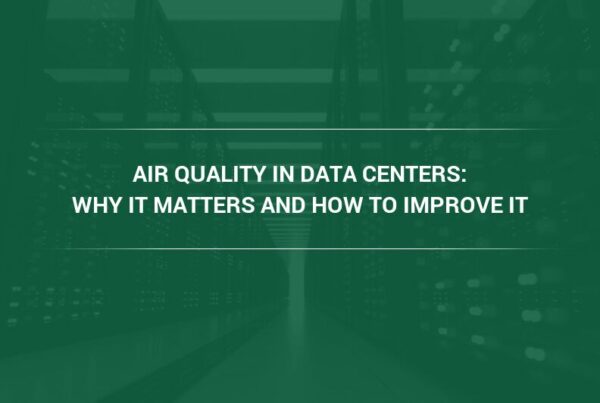Learn how air filters and their ability to preserve indoor quality may hold the key to protecting the brain from the detrimental effects of air pollution.
Air pollution isn’t just “dirty” air. It’s a complex mix of gases, particles, and liquid droplets in the atmosphere generated by natural causes like wildfires and human activity such as vehicle traffic, power generation and manufacturing processes. What’s certain, however, is that prolonged exposure to air pollution is dangerous to human health, which is what makes air filters in homes and other places we spend inside such as commercial office buildings, industrial and retail facilities so important.
In the United States, airborne pollutants are categorized as either criteria or hazardous air pollutants.
- Criteria air pollutants generally come from combustion process in cars, power generation, and industrial processes. These pollutants include carbon monoxide (CO), sulfur dioxide (SO2), nitrogen dioxide (NO2), ozone (O3), and particulate matter.
- Hazardous air pollutants, on the other hand, include toxic chemicals like benzene, mercury and arsenic.
“Long-term exposure to ultrafine particles can induce respiratory and cardiovascular diseases,” explains Joe Randolph Director of Distribution Sales at Camfil USA. “Below PM2.5, particles are more harmful because they penetrate deeper into the lung alveoli. The ultrafine particles can cross blood vessels walls and diffuse into the blood circulation to reach and affect organ function.”
But a recent report suggests that the effects of air pollution aren’t just limited to respiratory and cardiovascular health.
Poor Outdoor and Indoor Air Quality Main Cause of Pollution-associated Deaths
In 2017, The Lancet published a comprehensive review of diseases associated with pollution and found that air pollution was by far the biggest culprit of deaths and health complications caused by pollution. The report also referenced data from other studies, which raised concerns about the impact of air pollution on brain function, particularly among children and the elderly, who have developing and aging brains, respectively.
Air pollution, particularly pollution related to vehicle traffic, has been associated with an increased risk of neurodegenerative disease, particularly Alzheimer’s disease, and even neurodevelopmental disorders such as:
- Autism spectrum disorder
- Attention deficit hyperactivity disorder
- Learning and intellectual disabilities
- Schizophrenia
More research, however, has to be done to determine whether these connections are causal and, if so, figure out which components in polluted air are responsible for these complications, and if individual factors such as age, genetics, and gender are critical.
High Efficiency Air Filters Particularly Important Near Roadways
Living near major roadways, which are heavily congested with vehicular traffic, has also been associated with a higher incidence of autism and Alzheimer’s disease, which only adds to the urgency of installing air filters with higher capture efficiency in homes and buildings near roads with heavy traffic congestion.
But again, scientists aren’t sure yet if this is due to higher levels of airborne pollutants from cars and trucks on the road, or because of noise and vibration. It may even be due to how individuals with lower incomes, who may have a poor diet, tend to live near heavily congested roads.
And even if air pollution is actually the cause of these neurological disorders, which pollutants are the culprit?
Importance of High Efficiency Air Filters or Stand-Alone Air Purifiers in Buildings Near Major Roads
The focus on major roadways is important because while efforts to reduce air pollution have succeeded in significantly improving air quality in major cities across the United States, air quality in pockets close to sources of air pollution, such as roads, industrial facilities and power plants among others have lagged behind. It’s these areas where higher quality air filters or stand-alone air purifiers are absolutely necessary. And because people living in these locations tend to have lower incomes, the risk of developing diseases, including neurological diseases, from exposure to air pollution is both a public health issue and an environmental justice issue.
In fact, in 2017, Los Angeles Mayor Eric Garcetti ordered building inspectors to make sure homes and buildings near freeways were equipped with the proper-strength air filters to protect residents from exposure to pollution emissions.
How Air Filtration Systems May Help
As research continues on the link between neurological disease and air pollution, home and business air filtration systems still play a critical role in preventing diseases with a proven link to air pollution.
- High-efficiency particulate air (HEPA) filters are designed to remove particulate matter (PM) down to a size of 0.3 microns in diameter, at an efficiency rate of 99.97 percent.
- Microfiltration systems, which typically use a superabsorbent fiber material like activated carbon, remove gaseous pollutants like volatile organic compounds, cigarette smoke and ozone among others.
Before Buying Air Purification Systems
Before upgrading to more efficient air filters to capture the smaller particles, it’s important to talk to a trusted air filter manufacturer to determine which solution is most appropriate for the air quality problems at hand. Air filter companies, reliable ones anyway, will always take the time to understand the containment needs of a home or building before recommending a proper-strength system.
At Camfil USA, we take pride in protecting people from the health problems posed by exposure to air pollution. Get in touch with our team to learn more about the different ways to protect your indoor air quality against air pollution. You may also explore our catalog of home air filters to learn more about our product line.
Camfil USA Air Filters
T: 888.599.6620
E: Lynne.Laake@camfil.com
F: Friend Camfil USA on Facebook
T: Follow Camfil USA on Twitter



